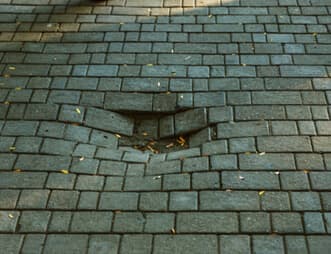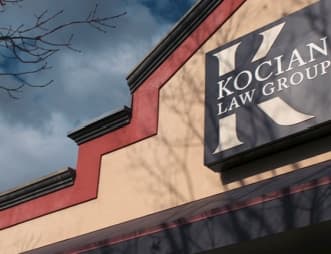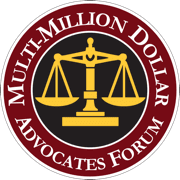Connecticut Premises Liability Lawyer

When you are injured due to an accident caused by a defective or dangerous condition on someone else’s property in Connecticut, you may be entitled to compensation through what is known as a premises liability claim.
Although it may seem reasonable to expect an owner or manager to compensate you for an accident that occurs on their property, premises liability claims can be complicated. Property owners and occupiers often attempt to deny or minimize their liability. They might argue that you or someone else was responsible for your accident.
If you have been hurt in an accident on someone else’s property, you deserve to be represented by a legal team that is committed to client service, getting results, and making you whole again. The Connecticut premises liability attorneys of Kocian Law Group treat our clients like we would want to be treated. We’ll go above and beyond for you and your family, and we’ll fight for compensation and justice.
Call us today to schedule a free consultation with a knowledgeable member of our legal team. We want to hear about your accident and discuss your rights and legal options.
What Is Premises Liability in Connecticut?
Premises liability is a type of personal injury claim that arises when an injury is caused by a dangerous or defective condition on someone else’s property.
Like most personal injury claims, premises liability cases are usually based on negligence. The injured party will need to show that the property owner or occupier was negligent and failed to use reasonable care in the maintenance of the property.
There are many types of premises liability claims. Examples of common premises liability claims include:
- Slip and fall accidents – These include falls that are caused by some sort of defect on the ground, such as spilled liquids, broken or uneven floors or pavement, worn rugs or carpets, or wires or other objects on the ground.
- Snow and ice accidents – A common type of slip and fall accident in Connecticut, these accidents happen when accumulated snow and ice is not cleared from outdoor areas like sidewalks, walkways, outside steps, or parking lots and driveways.
- Negligent security – When a property owner or occupier fails to provide sufficient security measures, including guards, lighting, or alarms, the owner or operator may be liable to a person who is injured by criminal acts that are facilitated by the insufficient security.
- Dog bites – The owner of a dog that bites someone unprovoked can be liable to the injured person, regardless of where the bite occurs or whether the dog is leashed.
- Elevator and escalator accidents – Property owners and occupiers can be liable to people who are injured by elevators and escalators, such as being crushed by closing elevator doors or tripped by broken escalator steps.
- Fires and explosions – Fires or explosions on someone’s property that are caused by a dangerous or hazardous condition can result in liability for the property owner or operator if someone is injured.
Other types of premises liability cases include:
- Amusement park accidents
- Negligent supervision
- Playground accidents
- Sexual abuse
- Skiing injuries
- Snowboarding accidents
- Camp School Abuse
What Do You Have to Prove in a Connecticut Premises Liability Claim?
Since most premises liability claims are based on demonstrating negligence, an injured party who brings a premises liability claim against a property owner or occupier is required to prove the owner’s or occupier’s negligence and failure to use reasonable care in the maintenance of the property.
The reasonable care that a property owner or occupier owes to a visitor to the property depends on the visitor’s status.
Most premises liability claimants qualify as invitees, which means that they are on the property for the benefit of the property owner or occupier. Examples of invitees include social guests in someone’s home and customers of a store or restaurant.
Visitors may also be licensees, which means they have right to be on the property but are there for their own benefit. Examples of licensees include door-to-door salespeople and utility workers.
The third category of visitors includes trespassers. A property owner or operator owes no duty to a trespasser except to avoid intentionally causing harm, such as planting booby traps against a burglar.
In most premises liability cases, it is necessary for the claimant to prove that a dangerous or hazardous condition existed on the property and that the property owner or occupier knew of the condition or should have known of the condition through the exercise of reasonable diligence.
For example, if a person is injured in a slip and fall accident on a wet floor in a supermarket, it is necessary to prove that the supermarket’s staff knew of the wet floor or should have reasonably discovered the wet floor before the accident.
Along with proving knowledge of the hazardous condition, it is also necessary for to prove that a property owner or occupier had a reasonable opportunity to remedy the condition. Take, for example, a snow or ice accident in which a property owner might argue that they didn’t have a reasonable opportunity to clear the snow and ice. This could be a valid argument if the accident occurred in the middle of a winter storm, and there simply wasn’t enough time to address the issue.
How Can a Connecticut Premises Liability Attorney Help?
If you have been injured on someone else’s property and it wasn’t your fault, having a dedicated, experienced premises liability attorney on your side can be vital to successfully recovering compensation. A premises liability lawyer can help you by gathering important documents like incident reports, and making sure that surveillance camera footage, eyewitness statements, and other timely pieces of evidence are secured before they are lost, erased, or forgotten.
A premises liability attorney can investigate the true cause of the accident to determine who may be responsible to you for compensation for your injuries. For example, it could be the property owner, the occupier of the property, or a third-party company contracted to maintain the part of the property where you were injured.
After building a solid case, your attorney can negotiate with the property owner or operator and their insurance companies to seek a fair settlement that provides you with full compensation for your losses. If a settlement is not possible, a premises liability attorney can help you through the process of filing and pursuing a civil lawsuit, taking your claim all the way to trial if necessary and advocating on your behalf to the judge and jury to seek a verdict and judgment in your favor.
When you choose a legal team like the Kocian Law Group to represent you, you will be able to rest easier knowing that you have a firm with extensive experience and vast resources behind you. We have a notable track record of successfully handling premises liability cases, including securing $1.95 million for a client who was injured in a slip and fall accident.
Premises Liability Compensation in CT
Victims who are injured in on someone else’s property may be entitled to compensation for various types of losses they have suffered.
Damages for premises liability claims fall into two categories – economic damages and non-economic damages. Economic damages are intended to compensate an injured victim for specific financial losses that he or she has suffered. These damages are usually easily calculated by reference to bills, invoices, paystubs, etc. Non-economic damages are intended to compensate an injured victim for more subjective damages that they have suffered as a result of their injuries.
Examples of economic damages include:
- Past and future medical expenses, which can include hospital stays, surgeries, doctor’s office visits, physical and occupational therapy, medication, and durable medical equipment like crutches or wheelchairs
- Past and future lost income, including wages lost due to work missed because of injuries, along with any future difference between pre-accident and post-accident income if the injuries cause a reduction in earning capacity
Examples of non-economic damages include:
- Pain and suffering, which represent physical and emotions anguish caused by one’s injuries
- Loss of quality of life, which include inability to perform tasks of daily living or to participate in activities you enjoyed prior to the accident
- Loss of consortium, which compensates an injured victim’s spouse and/or immediate live-in family for the loss of the victim’s companionship and services to the family
In extremely rare cases, an injured victim may be entitled to punitive damages. Punitive damages do not compensate a victim for losses, but are instead intended to punish a responsible party. Punitive damages are limited to cases of especially egregious conduct that would “shock the conscience” of a reasonable person.




